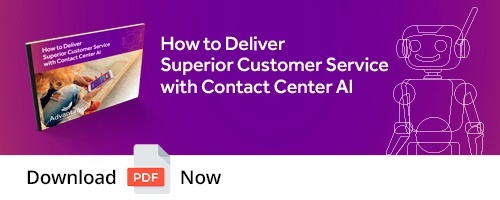 The customer service industry is undergoing a profound transformation, driven by rapid technological innovation. The advent of artificial intelligence, chatbots, cloud computing, and other cutting-edge technologies are changing the way that businesses interact with their customers, and it’s having a big impact on the way that customer service is delivered.
The customer service industry is undergoing a profound transformation, driven by rapid technological innovation. The advent of artificial intelligence, chatbots, cloud computing, and other cutting-edge technologies are changing the way that businesses interact with their customers, and it’s having a big impact on the way that customer service is delivered.
Here are some of the ways that technology is changing customer service:
1. AI chatbots
One of the most exciting developments in the field of customer service is the rise of AI-powered chatbots. These automated systems are designed to mimic human conversation and are becoming increasingly sophisticated.
With natural language processing (NLP) capabilities, chatbots can understand and respond to customer inquiries in real-time, providing quick and accurate answers to common questions. This can significantly reduce wait times and improve overall efficiency, while also freeing up customer service agents to focus on more complex issues.
2. Cloud-based solutions
Another key trend in the customer service industry is the move to cloud-based solutions. By leveraging the power of the cloud, businesses can access sophisticated customer service tools and applications without having to invest in expensive hardware or software. This can help to improve the flexibility and scalability of customer service operations, and it can also help to reduce costs by eliminating the need for on-premise infrastructure.
3. Virtual reality
In addition to chatbots and cloud computing, there are a number of other cutting-edge technologies that are poised to transform the customer service industry in the coming years. For example, the rise of virtual reality (VR) is allowing businesses to create immersive customer service experiences that can help to build brand loyalty and improve overall satisfaction.
4. Big data
Another key trend is the use of big data and analytics to gain a deeper understanding of customer behavior and preferences.
Big data refers to the large, complex and rapidly growing data sets that are generated by businesses in the digital age. This data includes everything from customer interactions and transactions, to social media posts, sensor data, and machine logs. With this information, businesses can better target their customer service efforts and provide a more personalized and relevant experience.
5. Multi-channel support
The use of multiple channels for customer support is becoming increasingly popular, with customers able to reach out via email, social media, chat, and even voice assistants. This multi-channel approach offers customers more flexibility and convenience, and helps companies to respond to customer inquiries more quickly.
6. Internet of Things (IoT)
The Internet of Things (IoT) is revolutionizing the customer service industry by allowing companies to monitor and manage customer interactions with their products in real-time. This can help companies to identify and resolve issues more quickly, improving the overall customer experience. IoT devices can also provide valuable data about customer usage patterns, helping companies to improve product design and features.
7. Social media
Social media has become an important channel for customer service, with customers turning to platforms like Twitter and Facebook to voice their concerns and complaints. Companies can use social media to engage with customers, provide support, and monitor customer sentiment. This can help companies to identify and address issues more quickly and improve their reputation.
Addressing the challenges associated with changing technology
Despite all of the exciting developments in the customer service industry, there are still some challenges that must be addressed in order to fully realize the potential of technology. One of the biggest obstacles is ensuring that technology is being used to complement, rather than replace, human interactions.
While chatbots and other automated systems can handle routine tasks and provide quick answers to common questions, there are many situations where customers prefer to speak directly with a human. To be truly effective, technology must be used to enhance, rather than replace, the role of customer service agents.
Another challenge is ensuring that customer data is being collected and used in a responsible and ethical manner. With the increasing amount of data being generated by customer interactions, it’s important to ensure that customer privacy is protected and that data is being used in a way that is transparent and compliant with relevant data privacy laws and regulations.
Despite these challenges, the future of customer service looks bright, with technology playing a major role in driving this transformation. By embracing these developments and adapting to changing customer demands, businesses can create a truly exceptional customer service experience that drives customer loyalty and helps to build a competitive advantage in an increasingly competitive marketplace.
How a contact center can help your business take advantage of these customer service technologies
Contact centers have long been a staple of customer service, providing a centralized location for customers to get help and support. With the advent of new technology, call centers are becoming increasingly sophisticated.
They’re also well positioned to help businesses take advantage of the latest advances in customer service technology for several reasons:
-
Centralized infrastructure: Call centers provide a centralized platform for customer interactions, making it easier to implement and manage new technologies.
-
High volume of customer interactions: Call centers handle a high volume of customer interactions, making it cost-effective to invest in technology to improve customer service.
-
Skilled workforce: Call center employees have specialized skills and experience in handling customer interactions, which makes them ideal users of customer service technology.
-
Opportunity for automation: Call centers can use technology to automate routine and repetitive tasks, freeing up staff to focus on more complex and value-added customer interactions.
-
Real-time data and analytics: Call centers can use technology to collect and analyze customer data in real-time, providing insights into customer behavior and enabling continuous improvement in customer service.
By leveraging the latest tools and technologies, call centers can improve their efficiency, enhance the customer experience, and stay ahead of the curve in an increasingly competitive marketplace. This can be a huge benefit for businesses looking to take advantage of the ever changing technology in the customer service industry.
Interested in learning how a contact center can enhance your customer service program? Get in touch with Advantage Communications today.





